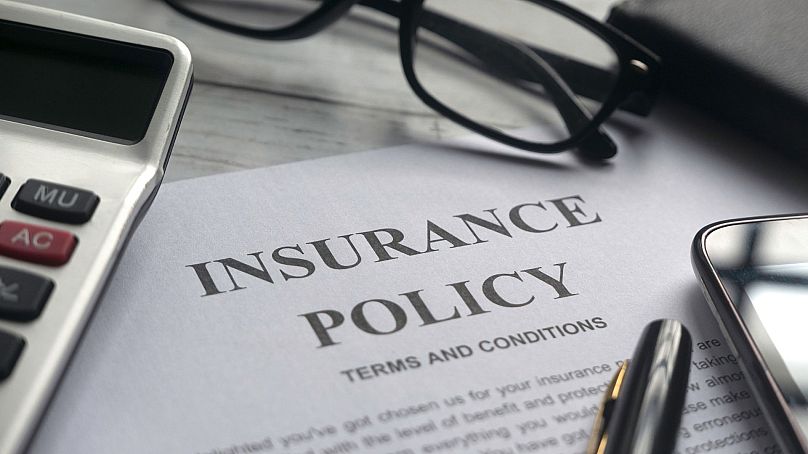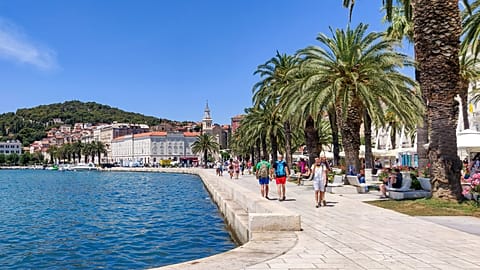Jordan Katherine endured every traveller's worst nightmare. Now, she wants you to check your insurance.
A young woman who was attacked by a stranger on holiday has urged fellow travellers to check their insurance, after foreign medical bills left her thousands out of pocket.
 ADVERTISEMENT
ADVERTISEMENT
 ADVERTISEMENT
ADVERTISEMENT
Until earlier this year, 27-year-old Jordan Katherine was a confident globetrotter, eager to explore the world and meet new people.
But while travelling in Sri Lanka in March, the Texas native says she suffered a brutal attack at the hands of a total stranger.
Hours of surgery and months of rehabilitation later, she’s finally on the road to recovery.
But she has an urgent warning for fellow travellers - check your insurance, or risk massive medical bills.
“I decided to share my story to bring light to the mistakes that I made regarding medical needs abroad and to hopefully save someone from what I went through,” she says.
Here’s why you need travel insurance while abroad - and how to make sure you get the right cover.
No travel insurance can lead to a huge financial toll
Katherine was attacked in a bar in Midigama, a Sri Lankan coastal village. After she “politely declined” a large group’s request that she give up her seat, she claims that one of the men then threw a glass “as hard as he could” at her - “almost like a baseball.”
The glass shattered in Katherine’s face, splintering into her eyes and mouth and cutting her lip wide open. Katherine had to undergo three hours of surgery, receiving stitches in four different areas of her face.
But apart from the mental and physical scarring, she has also faced a huge financial toll.
Unbeknownst to her, her travel insurance expired shortly before the attack.
“It has been an expensive journey,” she says.
The most important things to check on your travel insurance
Sadly, Katherine’s insurance nightmare isn’t uncommon. In 2019, a UK teenager was saddled with €140,000 medical bills after a freak scooter accident left her in American intensive care.
But though horror stories are common , a 2019 UK survey indicated that 38 per cent of people consider travelling without insurance.
This is a very bad idea, says Chris Rolland, CEO of AllClear Travel Insurance.
“With COVID still out there, fires breaking out across Europe and more people with medical conditions heading abroad this summer, it is absolutely vital that everyone going on holiday puts safety first,” he says.
To avoid a holiday nightmare, make sure you double check your entitlements before you go.
Different policies offer different levels of cover, but common inclusions include trip cancellations, medical emergencies, stolen items, personal injury, and accidents.
In case like Katherine’s, medical bills for an assault would usually be covered, as they are ‘unforeseen circumstances’ that derail a holiday.
Certain destinations may also need different levels of cover. For example, travellers to the United States will need additional medical coverage because the country has no public healthcare system. A two-day stay in an ICU might set you back a mammoth $30,000.
Remember that emergency healthcare is free in some countries
In some countries, emergency healthcare is free - but this doesn’t mean you don’t have to take out insurance.
If EU citizens fall ill whilst abroad in another EU country, they are entitled to any medical treatment that can’t wait until they get home.
British travellers with EHICs are also guaranteed the same privileges. Once they expire, they must be replaced with “Global Health Insurance Cards” (GHICs), the UK’s post-Brexit alternative. This card also allows Brits to access ‘medically necessary’ state-provided healthcare when visiting one of the 27 EU countries or Switzerland. That means treatment that can’t wait - whether it’s unexpected trips to A&E, or routine medical care for pre-existing conditions.
In some countries - including many in South America and Europe - emergency healthcare is free for locals and tourists alike.
Some countries have other reciprocal healthcare agreements that entitle their citizens to free healthcare in that destination before they go. For example, Brits and many Europeans can get heavily subsidised emergency medical care in Australia.
However, you should still get travel insurance - the cards don’t cover situations like mountain rescue, as well as other general blows to your holiday.
Aside from these basics, here are five tips to make sure you don’t get left out of pocket abroad.
1. When you buy your travel insurance is crucial
Travel insurance should never be an afterthought - this can get you in trouble.
For travel insurance to be valid for any flight changes you want to make or cancellations or delays from the airline, you have to buy it at the same time as you book your flights.
Even if you don’t want to cover yourself for flight changes, most companies don’t allow you to buy a new policy on the day of or the day before you travel. Buy travel insurance as far ahead as you book your travel.
2. Declare all pre-existing medical conditions
Make sure your insurer is aware of pre-existing health conditions, Mr Rolland says.
“A claim may be challenged if there are found to be any anomalies in what was/wasn’t declared,” he explained.
“Common conditions that travellers omit to declare include: asthma, high cholesterol and high or low blood pressure.
“The mantra should be: declare everything and if you’re unsure always speak to your Travel Insurance provider.”
3. Tell your insurer where you’re going - even if it’s just for a day
Different countries have different risk profiles for insurance purposes, so countries may be rated as higher risk even if they are right next door to each other.
“Portugal, for example, is classified a lower risk than Spain and so a day trip to Spain while being insured for a Portuguese holiday would not be covered,” Rolland explained.
Check if your insurance covers every country you plan to visit. If you have stopovers, check that they’re included, too.
4. Understand what cancellation cover you’re entitled to
Travel insurance usually includes some form of cancellation cover - but it’s important to double check your entitlements
Common inclusions are ‘unforseen’ circumstances like natural disasters, injury or illness (these may vary), or a travel destination becoming unsafe.
Common exclusions are undeclared medical conditions, a known illness of a close relative (in which case bereavement wouldn’t be included), injury and illness related to alcohol or drugs, and organised strike action.
5. If you extend your trip, extend your travel insurance too
If you extend your holiday, don’t forget to extend your policy. But be careful - you usually must do so before your policy expires. If you forget, you may have to buy a new one. Other companies limit possible extensions according to the traveller’s age and the length of the trip - so make sure you read the fine print.
Travel insurance should be accounted for in your travel budget
It isn’t easy for Katherine to think about the ordeal that turned her life upside down.
But she’s determined to speak out, to stop anyone else from enduring the same nightmare.
In addition to checking the details of your insurance, she urges would-be travellers to check the location of their nearest emergency hospital.
“While I was aware of the nearest hospital, it wasn’t a facility that could handle my injuries and I would advise anyone travelling to research the nearest well-equipped emergency hospital,” she says.
“I never imagined anything of this nature happening to me and I wish I would have been able to find a hospital to help me right away.”
Thanks to the support of family and friends, Katherine is looking to the future. But she urges travellers - particularly women - to be careful whilst adventuring.
“The brutal attack could have happened anywhere and had nothing to do with the country it happened in,” she said.
“The locals and friends I made (in Sri Lanka) could not have been more supportive following the attack.”


















